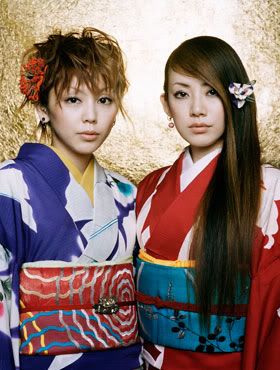
J-pop is an abbreviation of Japanese pop. It refers to Japanese popular musicians, and was coined by the Japanese media, to distinguish Japanese musicians from foreign musicians. Today, the Japanese music industry is the second most powerful in the world (behind the United States). Truly speaking, it’s quite hard to define because it’s rather subjective. It’s merely a mixed kind of music in Japan handed down from generation to generation.
It’s called “mixed because it is the combination between the modern and traditional Japanese music and early-modern Japanese genres like enka and kayōkyoku.
J-pop is an integral part of Japanese popular culture, being found in anime, commercials, movies, TV shows, and video games and other forms of J-ENT. Some television news programs even run a J-pop song during their end credits.
In anime (?) television shows, particularly dramas, opening and closing songs are changed up to four times per year. As most programs have both opening and closing songs it is possible for one show to use 8 tracks in a single season.
Over the past decade, J-pop has continually gained fans worldwide through video games and anime. Many video game fans import games from Japan well before they are released in their respective countries. The theme songs and soundtracks from these games can be a gateway to further interest in J-pop and other genres of Japanese music. One example of this can be found in the games Kingdom Hearts and Kingdom Hearts II, in which popular J-pop singer Hikaru Utada performs the main theme songs. Her song "Easy Breezy" was also used to promote the Nintendo DS. The Ouendan Series and Band Brothers for DS both feature a lot of J-Pop songs. In the case of anime, shows are normally sold in the West with their original soundtracks untouched, affording more direct exposure. Some shows aired on television in the United States, for example, have seen their themes go so far as to become commercially available as ringtones through mainstream vendors in that country.
Ripina Nguyen



No comments:
Post a Comment